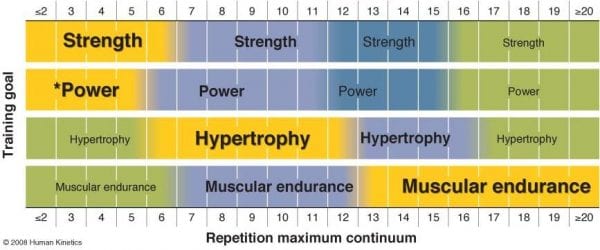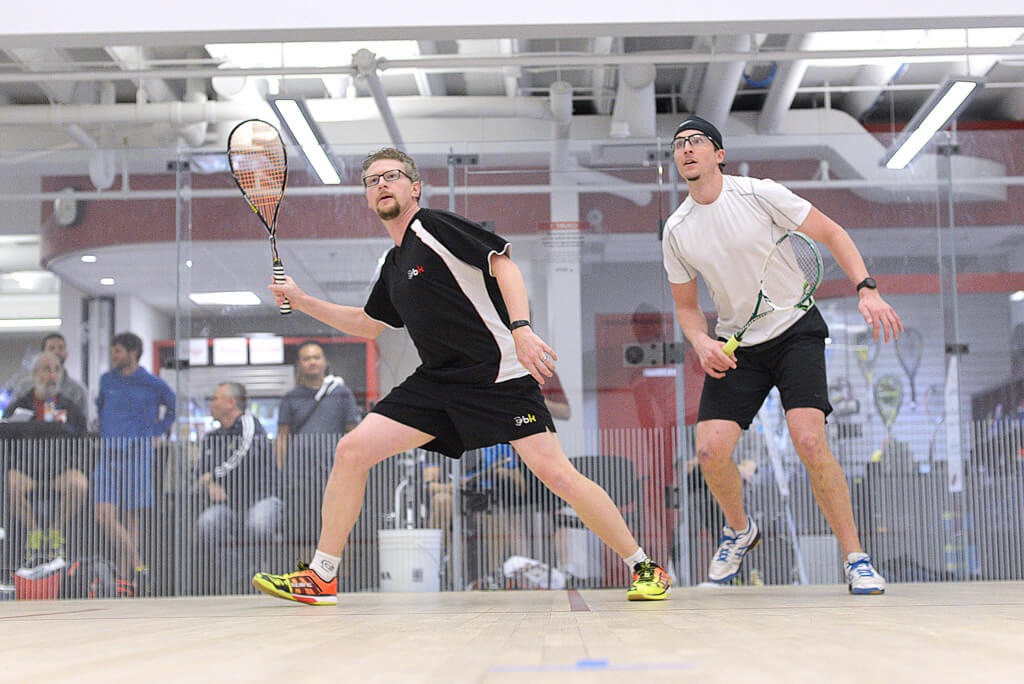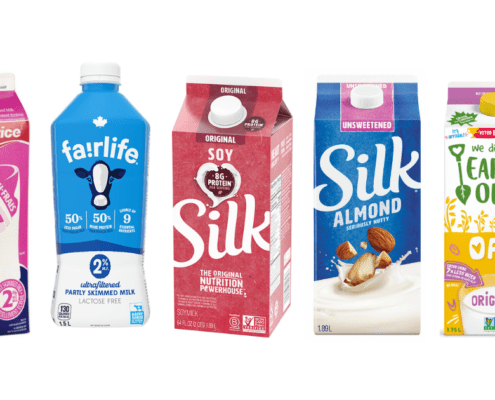Weight Training For General Health & For Squash
Below is more of a general summary about exercise and weight training as it applies to squash and general health.
So…Why Should You Exercise in the First Place?
There are many reasons why you should exercise. For general health, there are many but here are a few reasons:
- Decreased stress
- Increased mood
- Increased energy
- Better sleep
- Good social activity – mental health
For Squash, and sport, the reasons are more performance related – we’ll go over this in a bit.
How often should you exercise? Health Canada recommends at least 150 minutes of MVPA (Moderate to Vigorous Physical Activity) activity per week, either in one session or bouts as short as 10 minutes. So, If general health is your goal then shoot for that as a minimum. If you have more of a performance related goal, then the answer to this is different – I touch on this a little later in this post.
Best type? What I tell my weight loss clients, before and after their weight loss happens: the best type of exercise is the type that you enjoy, so that you will do it because you enjoy doing it and not because it’s good for you or is a “chore.” So, you have to ask yourself: why are you exercising in the first place? The best type of exercise for someone just trying to be healthy is anything that will get you moving and your heart rate elevated for a sustained period of time. If you’re aiming for sports performance, then the sport you are playing is often the answer to that question – often coupled with weight training and cardiovascular training.
One caveat: at a certain again, around 40 and onwards, you need to do weight bearing exercises – more than bodyweight – to maintain your muscle. If you don’t use it, you’ll lose it. The answer here is often: weight/resistance training.
Why do Weight Training?
There are many benefits, but I will attempt to summarize many of them via point form:
- Prevent age-related muscle loss – as alluded to in the last paragraph
- Prevent accelerated age-related bone density loss – especially important for females
- Maintain and build lean muscle mass
- good for weight loss/maintenance
- good for aesthetics
- better posture, physical appearance, self-confidence, etc.
- Get stronger
- More energy: if you’re stronger, it take less energy to do “said task”
- Less Injury prone: the stronger your muscles are around a joint, the more stable it is
- Sports performance:
- move quicker, faster
- Improved muscle endurance (stamina) – less repetitive stress on muscle if you’re stronger
- lifestyle: eg. be able to walk up stairs easier, carry groceries, etc.
- Coordination
- better balance
- improved athletic performance
- aids in injury prevention
Most people use weight training for the following reasons:
- General Health
- Weight loss/management
- Injury prevention
- Sports Performance
So, let’s talk about a little bit more about this.
How often should you do weight training?
I’m going to answer this by generalizing for three different goal oriented groups, and mainly suggest the minimum; know that the answer, and what is right for you can be different.
- General Health & Injury Prevention: At least 2 times per week, at minimum 30 minutes. If you want to do more then this, great.
- Weight Loss & Weight Management: At least 2 times per week, at minimum 30 minutes. This recommendation is based on the goal of maintaining muscle, while in a caloric deficit. When looking to lose weight, your primary goal is to set up a exercise and nutrition strategy to put you into a caloric deficit. With a caloric deficit, your muscle might be used as a energy source and therefore a good weight loss program will incorporate weight training to help build or offset any losses during the process.
- Sports Performance: At least 3 times a week, at minimum 30 minutes.
With all of the above recommendations, the time suggested is actual time spent performing “working sets” of exercises and not the whole workout itself – not warming up, cooling down, etc.
What types of exercises should you be doing?
Similar to the recommendations about how often you should be doing weight training, I will use the same groups for describing the types of exercises.
- General Health & Injury Prevention: Incorporate a combination of exercises that target all muscle groups and joints, with individualized emphasis on problem areas (postural issues, weaker muscles and/or joints., etc).
- Weight Loss & Weight Management: Incorporate a combination of exercises that target all muscle groups and joints, with emphasis on compound movements (more than one joint) that use larger muscle groups for a larger energy demand (eg., squats and not bicep curls)
- Sports Performance: Incorporate a combination of exercises that target all muscle groups and joints for balance of muscles strengths, but strategically focus on muscles used in the sport (eg. Legs for squash)
What are the workout variables involved?
By workout variables, I mean how many repetitions (how many times you perform the movement), sets (how many times you do the full amount of recommended repetitions of the given exercise), and rest periods.
Different workout variables change the physiological demand on the muscle, and therefore outcome and adaptation that will occur. For example, if you are specifically trying to target Strength as your focus, reps of 3-6 work best. Below are the general guidelines, based on what research has shown, of what the ideal rep range for various goals. What you should see is that you can target multiple outcomes at once, but there is a “sweet spot” for each desired outcome.

- General Health & Injury Prevention: 10+ reps, 2-3 sets per exercise, and 60-90 seconds between sets.
- Weight Loss & Weight Management: 12-15 reps, 2-3 sets per exercise, and 60-90 seconds between sets.
- Sports Performance: for sports specific muscles, a combined program that over time will target: 3-6 rep range for Strength & Power (more focus on tempo with Power), Hypertrophy (Muscle size), and Muscle endurance (12-15 reps). Sets amount and Rest periods will change according to the specific outcome training at the time.
Some things to note:
- The above rep counts are based on your ability to do that many reps for a given weight, and not all weight is created equal. Said differently, if you can comfortably do 15 reps with 15 lbs. while a given exercise, doing the same weight (15lbs.) and only doing 5 reps won’t maximize your ability to promote a strength adaptation. In other words, the weight you use will determine the rep count.
- If strength is the primary thing you want to target, based on the above image you might think reps between 3-6 might be optimal. I would caution against this until you have mastery of the movement as your likelihood of getting injured increases as you increase the weight. Start with 12 reps (another reason to start here I touch on in the next point) and then work your way lower as you get comfortable with the movement, perfect the technique, and properly activate the muscle group.
- If you are new to weight training, It’s suggested to start with 12 reps for 4-6 weeks as your body goes through an “anatomical adaptation” phase. This essentially is a learning phase for your body as it experiences a different type of stimulus, and will allow you to develop the proper coordination to perform different movement under a load higher than your bodyweight and will allow things like your tendons to become accommodated to the new stress.
- If you are new to weight training you will see a marked increase in strength quickly. This is not because your muscle is getting bigger, rather your strength increase is due to neurological adaptations where your brain-to-muscle communication is getting more “organized.”
- I won’t talk about this in-depth, but simply state that training programs should be regularly changed to most effectively target the desired outcome.
I hope that helps all of you understand a little more about weight training and it’s importance for health and for sport.
Another post you might be interested in: Nutrition For Sport
Here’s a sappy video that really hits home why it’s important to exercise:
You might also like:






